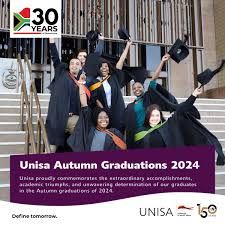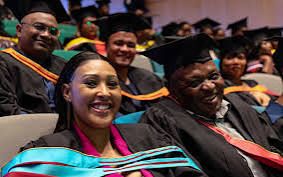






As the graduation season unfolds once more in 2024, we celebrate the culmination of years of hard work, dedication, and intellectual growth. These newly minted graduates hold the promise of contributing significantly to South Africa’s development. However, amidst the joyous ceremonies and hopeful aspirations, we must pause to reflect on the state of education today. Modern trends have both enriched and distorted the educational landscape, and it is essential to examine their impact critically.
Education, like any other field, is susceptible to trends. The allure of what’s fashionable can lead us astray, diverting our attention from the core purpose of learning. When education becomes a mere trend, it risks losing its timeless value. Trends have a sell-by date; they come and go. But education should endure, transcending fleeting fashions.
Modern graduation ceremonies often prioritize spectacle over substance. While they are jovial occasions, we must remember their true purpose. These ceremonies symbolize the official conferral of qualifications earned through rigorous study. They are not merely photo ops or social events. When we lose sight of this, graduates may find themselves ill-prepared for the challenges beyond the stage.
South Africa’s economic situation is undeniably challenging. Unemployment rates remain high, and graduates face an uphill battle in securing meaningful employment. However, blaming the economy alone is insufficient. We must also scrutinize the quality of education provided and its alignment with market needs.
Fashionable education contributes to this conundrum. When institutions prioritize trends over substance, graduates emerge with degrees that lack practical relevance. The disconnect between academia and the job market exacerbates unemployment. Employers seek skills, adaptability, and critical thinking—qualities often overshadowed by fashionable curricula.
Modern graduates sometimes embrace atheism with fervor. While questioning beliefs is healthy, the danger lies in dogmatism. Atheism, when wielded as a weapon of superiority, stifles dialogue and critical inquiry. Graduates should engage in respectful discourse, not dismissive rhetoric.
Education should broaden minds, not narrow them. An open-minded graduate appreciates diverse perspectives, seeks evidence, and respects differing viewpoints. Fashionable education often discourages critical examination, promoting conformity instead. Let us encourage graduates to explore, question, and embrace intellectual humility.
The word “education” derives from the Latin “educare,” meaning “to lead forth.” Education is not about stuffing minds with facts; it’s about nurturing informed citizens who contribute to society. It’s a journey of enlightenment, not a sprint toward a degree. Graduates should embody this essence—curious, reflective, and committed to lifelong learning.
Philosophically, education serves as a beacon guiding humanity toward wisdom, empathy, and progress. It equips us to grapple with complexity, appreciate beauty, and seek justice. Let us reclaim this vision, transcending trends and embracing education’s profound purpose.
Leave a comment